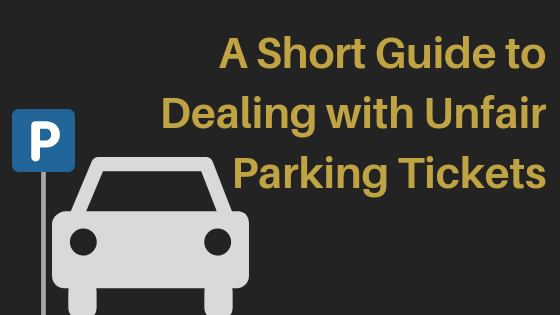A Short Guide to Dealing with Unfair Parking Tickets

When exactly can you defend a claim for a parking fine? The general rule is of course that you cannot. If you park where it is prohibited or where a ticket is required, you will usually have to pay up.
This is true of public land, where breaching restrictions (such as by parking on double yellows or in council-controlled parking without paying) results in a ‘Penalty Charge Notice’ (a fine). It is also true of private car parks, where by parking you are entering into a contract with the owners (reflecting the exchange of your money for the use of their space). Whilst the ‘Parking Charge Notice’ that can be issued by private parties is not technically a fine, it will still typically be necessary to pay, given that it is effectively a notice to pay for a breach of contract.
In both cases there are avenues for appeal – and in neither case should you pay if you intend to appeal, as this can be seen as accepting liability. The course for appealing a Penalty Charge Notice will be set out on the ticket and is available online. Whilst there are different rules depending on which council has issued your ticket, in all cases you have 28 days to appeal and if you do so within 14 days will only need to pay 50% if you are unsuccessful.
For Parking Charge Notices, the relevant contact details should again be on the ticket. The operator will often have an appeal process of its own. You should check to see whether they are a member of the British Parking Association (BPA) on the BPA website. If they are, you will be able to appeal (within 28 days of rejection by the operator) to Popla (Parking on Private Land Appeals) for an independent review. If you do not pay and fail to appeal, the car parking firm can take you to the small claims court to recover their losses.
Appeals usually have to demonstrate that the ticket was unfair, for instance due to a lack of visible (or poor) signage. As may be expected, safety can be provide a justification. It is legal to stop a car anywhere following an accident if it is unsafe to drive. On public land this includes locations where there is usually an absolute prohibition against doing so, such as on double yellows. If you do receive a Penalty Charge Notice in such circumstances, you should appeal.
The situation with private parking is less clear cut, as the issue is not about legality but about whether you have inadvertently entered into a contract. Popla does not specify mitigating circumstances in its code of conduct. In other words, unless individual private parking firms opt to give customers leeway, then there is no exemption for safety. That said, if your appeal to Popla persuades them that there were mitigating circumstances they will refer this back to the private parking firm. Nevertheless, this provides no guarantees.
Claiming that a charge is excessive is highly unlikely to result in success. It is true that the courts can refuse to enforce a so-called “penalty clause”. Since 2015, however, such clauses do not include those that serve ‘a legitimate purpose’ and are not ‘manifestly excessive. Notably, one of the cases that decided this concerned an £85 parking ticket, which was not deemed manifestly excessive. That said, the ‘legitimate purpose’ aspect may be easier to dispute – in a recent case it was argued that a charge was inappropriate in a near-empty car-park.
If any of this sounds unfair, you are not alone. The law is already being reformed to ensure charges and terms are visible and reasonable, and there is likely to be further pressure for further reforms.
If you are appealing a parking ticket and need help or advice visit our Small Claims page for more information on how we can assist.
Written by Emile Yusupoff
